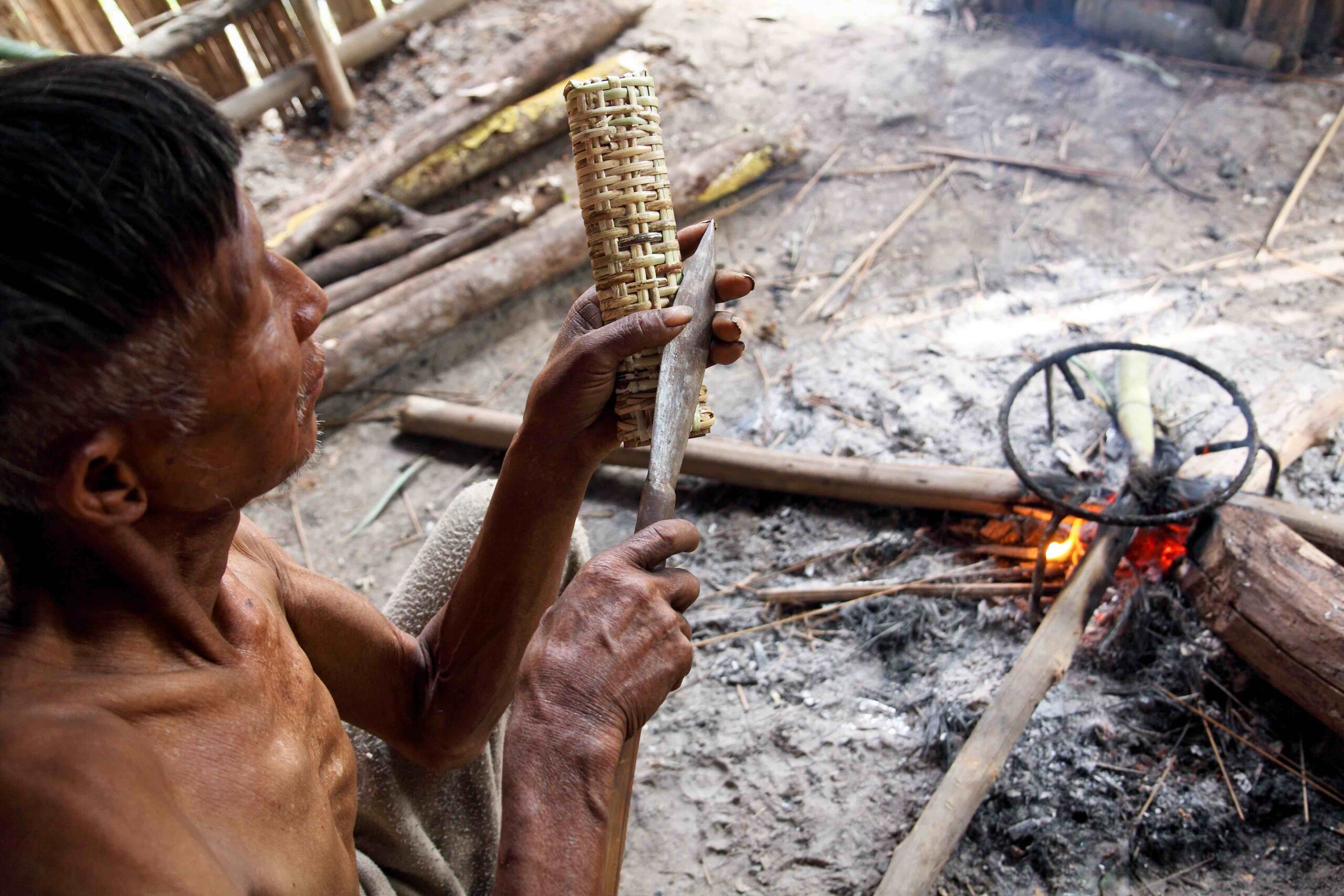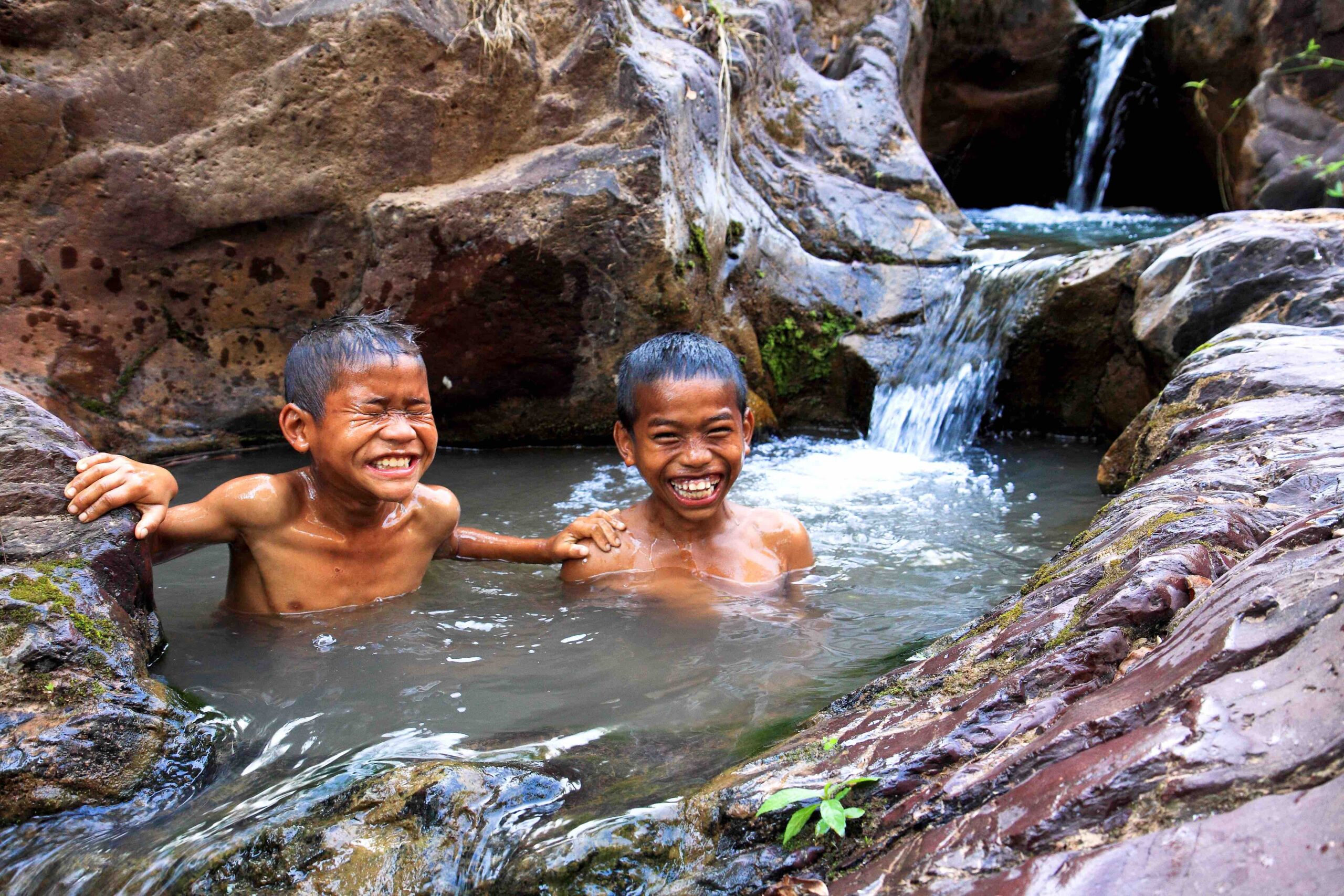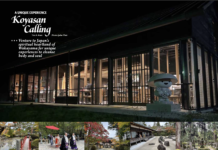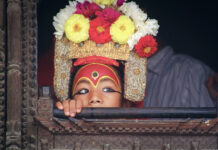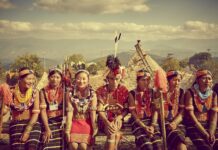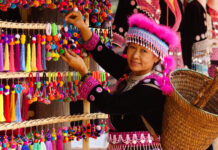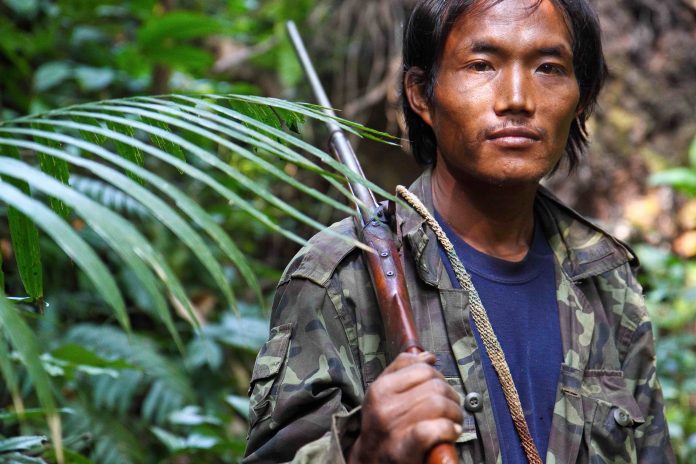
Text Shu Nimonjiya | Photos Geza J. Holzinger
When development and preservation collide.
In the highlands of Northern Thailand, there was once a truly isolated tribe whose individuals were called phi (spirit/ghost). Staying hidden largely out of fear, they lived deep in the forest, completely isolated from the prying eyes of outsiders. When once an attempt was made to approach them, they immediately disappeared into the forest, leaving behind their “windscreens” made of banana leaves. It was a faint indication that “something” was there, but was far from being decisive evidence of the presence of human beings. The lowland Thais called them phi tong luang – spirits of the yellow leaves – and their existence continues to be shrouded in mystery.
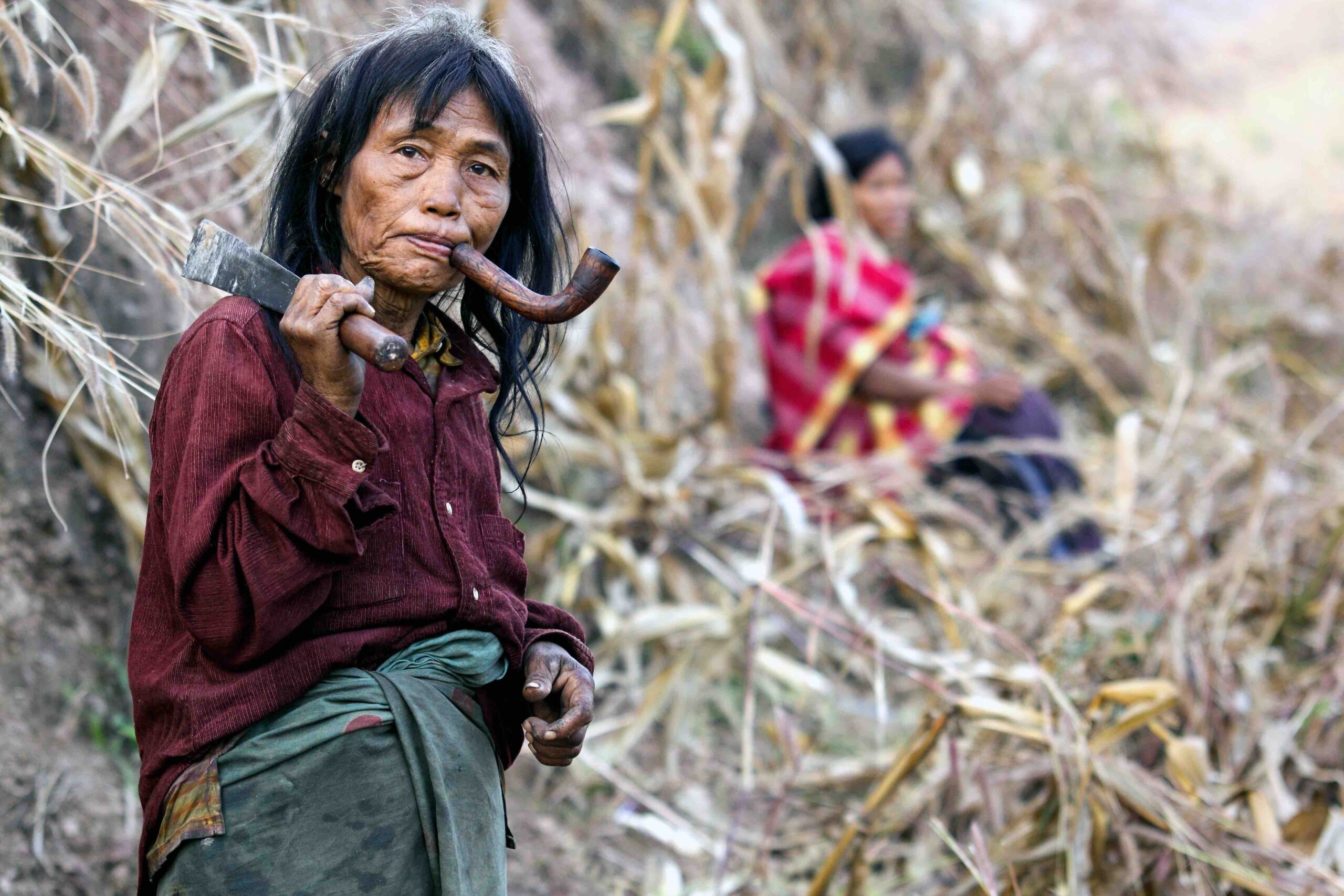
These people call themselves Mlaq Briq (Mlabri), or just Mlaq. The word Mlaq means “human being” and Briq means “forest” in their own language, which belongs to the Austroasiatic group of languages. They are one of the smallest ethnic groups in the world. An official 2002 population census on ethnic groups (known in Thai as chao khao, or “hill tribes”) living in the northern part of Thailand put the total population at 923,257, which constituted 1.45 percent of the total national population of Thailand at the time. The Mlabri numbered just 282, constituting only 0.03 percent of the total population of hill tribespeople. Today, there are approximately 400 individuals.
For many years, the Mlabri were scattered throughout the forests, existing as nomadic hunter-gatherers. They hunted wild animals by spear and hand-spade and gathered wild plants and fruits. However, they were by no means an isolated people. They have maintained limited economic relations with other hill tribes such as the Khamu, Karen, Lahu, H’tin and Hmong, and even the highland Thai. The Mlabri sometimes visit these other tribes’ villages to exchange necessities.
Due to their traditional subsistence through hunting and gathering, the Mlabri are often considered “living fossils” – but this is an inaccurate charaterisation. A recent genetic study found that the Mlabri were established about 500 to 800 years ago, from a very small number of individuals who engaged in agriculture. Thus, it can be said that the Mlabri are not continuous hunter-gatherers, but rather respecialised hunter-gathers.
If anything, they can no longer be considered as having a traditional way of life. Over three decades, significant social changes have taken place within the community, as a result of large-scale deforestation, which occurred at the end of World War II, along with a state-led policy, which has been conducted since the mid-1980s. Today, they lead sedentary lives, engaging in wage labour, cash crop cultivation, and ethnic tourism.
One could ask: How much would the world change without the Mlabri? An example will suffice to answer this question. The word “jealousy” does not exist in their language, which is to say that they have never been envious of others. Yet today, this is no longer the case. As they are integrated into Thai society under the banner of development, young Mlabri in particular have begun to understand the modern world and have started to express this feeling. They now have a measure to compare themselves with others. Thus, some Mlabri youths, aware that they are disadvantaged in all possible ways, are finding it increasingly difficult to see their position within Thai society in a positive light.
For the rest of this article (Asian Geographic No.108 Issue 6 /2014 ) and other stories, check out our past issues here or download a digital copy here
The 25th anniversary of the largest and longest running dive show, Asia Dive Expo (ADEX) is set to occur on the 11-14th April 2019. Centred on the theme – Plastic free Future, ADEX is more than just a dive show with its commitment to the environment. Among an exciting lineup of programs, attendees can look forward to a Future Forward Series of Panel Discussion on the Single-Use Plastic Conundrum in Asia, on 13th April.
So join us at the event, get inspired and for all you know, you might just liberate the inner diver in you! More details of the event here.


